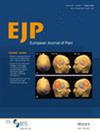This study aimed to investigate the association between chronic postsurgical pain (CPSP) and the risk of dementia, addressing a significant gap in the existing literature and highlighting potential implications for clinical practice and public health.
Utilising data from Taiwan's National Health Insurance Research Database, a propensity score-matched cohort study was conducted involving 142,682 patients who underwent major surgery between 2004 and 2018. CPSP was defined as prolonged analgesic use post-surgery, and dementia diagnosis was tracked until December 31, 2022. Multivariable Cox regression models were employed to calculate adjusted hazard ratios (aHRs) for dementia risk in CPSP versus non-CPSP groups.
Before propensity score matching, the CPSP cohort (n = 37,438) exhibited a higher risk of dementia, with aHRs of 1.35 (95% CI: 1.30–1.40). After matching, the aHR remained elevated at 1.31 (95% CI: 1.26–1.37), indicating a significant association between CPSP and dementia risk. Subgroup analysis confirmed this association across various demographic and clinical factors, with sensitivity analysis reinforcing the robustness of the findings.
This study establishes CPSP as an independent predictor of dementia risk, highlighting the importance of postoperative pain management in mitigating long-term cognitive outcomes. Approximately 30% of dementia risk post-CPSP presents an opportunity for risk reduction through effective CPSP management strategies, emphasising the need for targeted interventions to address this critical healthcare issue.
This study provides compelling evidence that chronic postsurgical pain (CPSP) significantly increases the risk of dementia, highlighting a critical and previously underexplored connection between postoperative pain and long-term cognitive decline. By establishing CPSP as an independent predictor of dementia, our findings underscore the importance of effective pain management strategies in surgical patients, particularly to mitigate the heightened risk of dementia and improve long-term outcomes.


